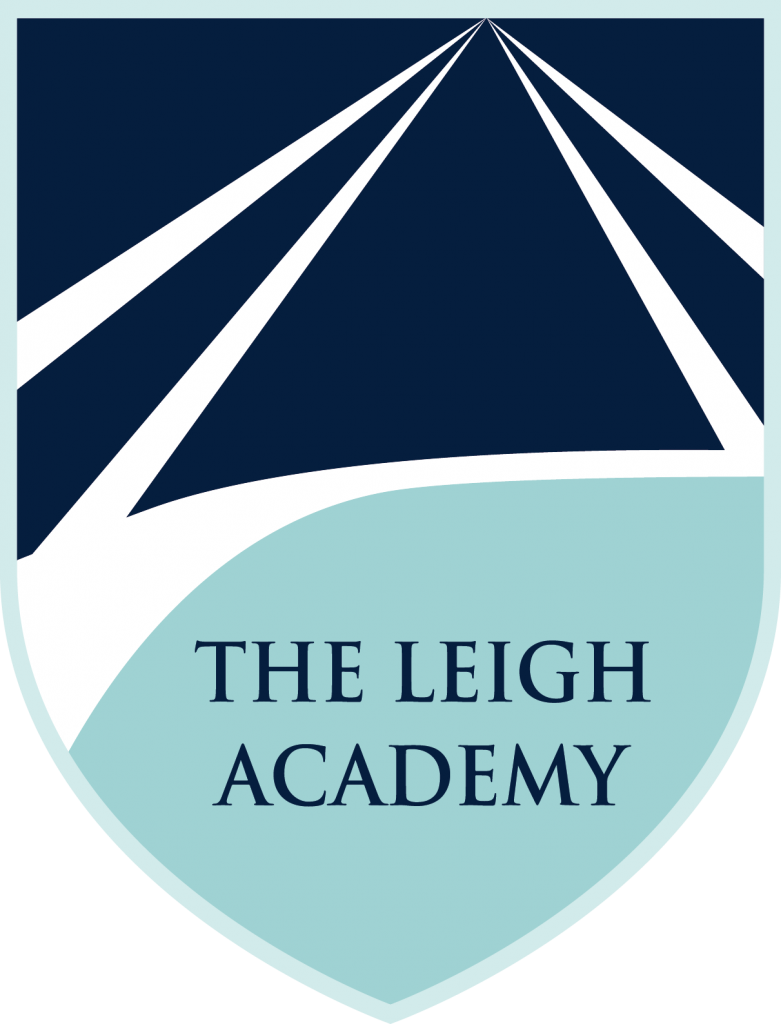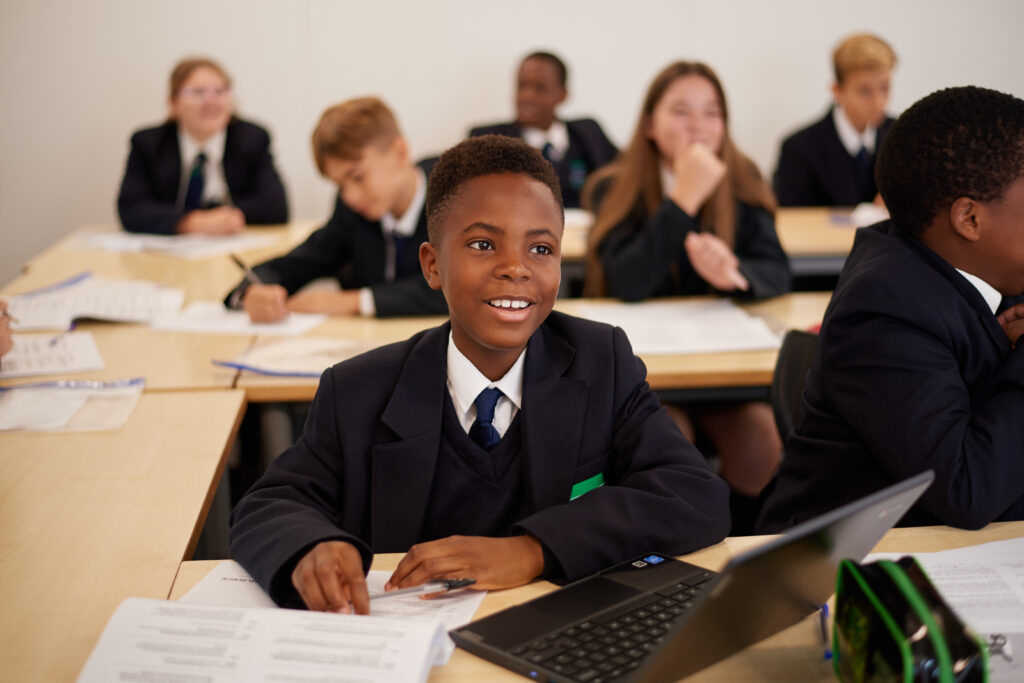At The Leigh Academy, we recognise the importance of providing students with a balanced education, one that is both academically rigorous to ensure the best outcomes for all our students but also provides our young people with all the tools required to become forward thinking and empathetic citizens in today’s ever changing world.
Intent
The Leigh Academy aims to ensure that all students gain a wide and extensive knowledge base which combined with co curricular opportunities build students cultural capital. We have a curriculum that is broad and balanced ‘Opening Minds to Success’ through delivery of the ‘Healthy Minds’ programme ensuring that the IB learning profiles are fully embedded through the Key Stages. Students become resilient learners and are well prepared and successful in the next stage of their education or career pathway. Our curriculum is structured in to the 3 Key Stages to achieve these aims in the following way:
- Key Stage 3 (Year 7, 8 and 9): The Middle Years Programme (MYP)
- Key Stage 4 (Year 10 and 11): GCSE and equivalent qualifications
- Key Stage 5 (Year 12 and 13): The IBCP, A-Levels and BTEC qualifications
Key Stage 3 and MYP
As an IB World School, the MYP curriculum we implement at Key Stage 3 seeks to develop enquiring, knowledgeable and caring young people who help to create a better and more peaceful world through intercultural understanding and respect. The MYP is designed to teach students in Key Stage 3 to become independent learners, who can discover the links between subjects and the real world. The MYP emphasises the study of 8 subject groups:
- Language Acquisition
- Language and Literature
- Individuals and Societies
- Sciences
- Mathematics
- Arts
- Physical and Health Education
- Design
The MYP places great emphasis on international-mindedness, interdisciplinary learning and service to others. The programme also offers opportunities to be actively involved in the community and promotes environmental responsibility in an ever changing global society.
To ensure an exceptional breadth and depth of learning, our Key Stage 3 curriculum provides a full three years of exploration and development of a wide range of topics, knowledge and skills, underpinned by the International Baccalaureate Middle Years Programme (IB MYP) and linked with our award winning Healthy Minds lessons.
In Year 8, students choose 2 subjects to study in depth through Year 9. This is a deliberate action to further engage students and enable them to really enjoy their subject whilst learning the depth of the content over a three-year course. The curriculum model allows students to choose 2 subjects in addition to the core maths, English, science, PE, computing, DT and RSE / Healthy Minds lessons taking place within the MYP framework. This approach helps lay the foundations for study at KS4, with the GCSE curriculum choices taking place in Module 3 of Year 9.
The curriculum booklets linked below contain valuable information about the curriculum your child will be studying whilst with us in from Year 7 to Year 9 and provides an overview of our extensive and forward-thinking IB MYP programme. There is also key information on assessment, literacy, numeracy, My Child At School (MCAS), Healthy Minds and the co-curriculum.
Key Stage 3 curriculum 2022-23
Click on the links below to view the curriculum details for each Key Stage 3 subject:
Implementation
The implementation of the curriculum content will focus around ensuring that all students are active learners being taught by staff with strong subject knowledge. The focus this year will be on ensuring that knowledge retrieval is at the heart of all lessons and that there is interleaving evident in all schemes of work. It is essential that greater emphasis and importance is given to disciplined literacy with learning areas and staff taking responsibility for developing the reading, writing and oracy of learners. Assessment must be carefully crafted in order to ensure students are well challenged on their prior learning and that they fill any gaps in their prior knowledge. Effective and immediate feedback through conferencing is an important factor in ensuring students improve their work, learn from every experience and are reflective in their learning. Feedback should be motivating, manageable and meaningful. Greater focus needs to be given to ensure more students achieve higher grades in KS4 vocational courses in particular.
Impact
The curriculum will make a positive impact on the outcomes of every child. We will know that this is true as we are delivering a high standard of education, quality assured through qualitative and quantitative measures. Leaders at all levels review learning, talk with our students and provide feedback to move practice forward. The impact of the school’s curriculum is measured through several means:
- Outcomes for students across all key stages and groups
- EHCP Objectives
- Progress and attainment data for current year groups
- Destinations data
- Attendance and participation data
- Behaviour logs
- Engagement in enrichment activities
- Stakeholder feedback
- Progress towards the Gatsby benchmarks.



